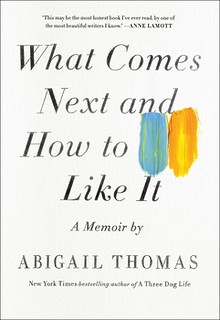It is a small book--about 5"x7"--and only has 159 pages--quite a few of them taken up by the illustrations (provided by Olivia author/illustrator Ian Falconer), but it is definitely not light reading. Many of the stories had a kick of recognition or resonance for me, but none more so than "The Parenting Storks" about stork sisters who are arguing about how and what to tell their respective children about the "facts of life."
Having parented four children most of the way into (chronological) adulthood, Hubby and I have been dealing for twenty years or so with the question of when, how much and what to tell curious kids and even kids who express no curiosity whatsoever (who are sometimes the kids who need the most information) about not just the facts of reproduction, but the feelings and intricacies of human sexuality.
Almost from the beginning, we agreed that we would provide age-appropriate information as truthfully and matter-of-factly as possible and that we would try to foster an environment in which questions would always be welcome. We may have fallen short in a thousand ways as parents*, but I count our openness with our kids about sexuality as one of our great successes. I do not harbor the illusion that my children tell me everything, but I have little doubt that they know they can tell me anything.
In the spirit of openness, when the boys were first inching into adolescence, I told them there was a specific drawer where there would always be condoms. I would pay no attention to what was gone and would just periodically add more and, of course, if I ever neglected to add more and the drawer was dangerously low, they were welcome to give me a reminder.
A few years ago, Hubby was taking an online class that involved ethics and somehow, in the forum for the class, where classmates could hold discussions, the fact that we had a dedicated condom drawer in our house that all our children were aware of came up. One of the commenters, who had previously made clear her fundamentalist Christian beliefs, stated that providing birth control for kids was "lazy" parenting.
If the commenter had referred to our technique as "immoral" or even "amoral," I would've conceded that within the confines of her own belief system she had a point--though I do not personally see sexuality as a moral issue, I understand there are a good many people who do.
Even with the lazy remark, the commenter may have had a point if we had simply taken a box of condoms, dumped them in some random drawer and said, "Have at it, kids." But, in our house at least (and I'm sure in many homes where birth control is provided for teens), that drawer happened in the context of an ongoing conversation. It happened in the context of our own mixed feelings about our children's burgeoning sexuality--and our struggle to accept them as individuals with their own desires, motivations, and feelings. Not lazy work, especially when you take it seriously.
In fact, if we want to talk about what takes more "work"--psychologically, emotionally, etc--it seems to me that force-feeding your teens a pre-scripted "moral" reality about sexuality and expecting them to swallow it whole and abide by it is actually a path of significantly less resistance than getting to know your children and fostering an environment of openness where any question can be safely asked and answered.**
Of course, there is such a thing as too much openness--and the "smart" stork sister crosses that line and then some in Sedaris's "The Parenting Storks." In the end, the misinformation spread by one sister and the oversharing of the other together lead to dire consequences that aren't spelled out, but rather implied in the text and accompanying illustrations.
If the stories in Squirrel Seeks Chipmunk are fables, they are not fables in the traditional sense--not the versions of Aesop we read in grade school with simplistic and clearly spelled out morals. Instead they are complex tales touching on prejudices and presumptions, the costs of abiding too closely to social norms or abandoning them completely, and the dangers of gullibility and misplaced faith. The illustrations--cartoon animals the victims and prepetrators of disturbing acts--are often disconcerting, but somehow absolutely perfect at the same time.
By showing us all this darkness in the hearts of animals, Sedaris shines a light on the ways we humans constantly judge and misjudge one another and ourselves and the price we pay for those judgments. If the stories stray at times into the overly graphic or the sensationalistic, so, too, do our lives.
Masked Mom's One-Word Review: Revealing.
*If we're lucky it's only a thousand ways.
**Even if that answer leads only to more questions. Even if that answer is "I have no idea, but let's see what we can figure out together."
(Full disclosure: This is not an entirely "fresh" post. About a third of it was written during last year's NaBloPoMo and it has languished in my drafts folder unfinished ever since.)



No comments:
New comments are not allowed.